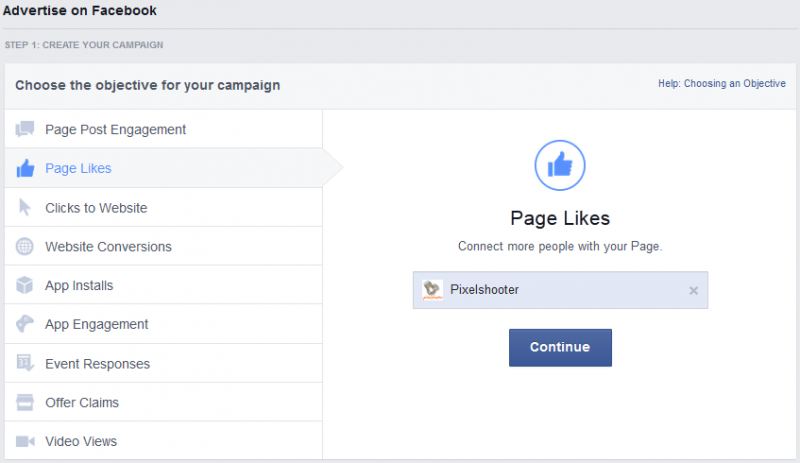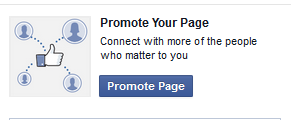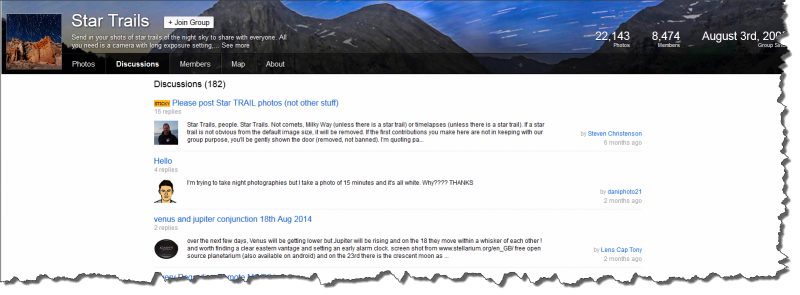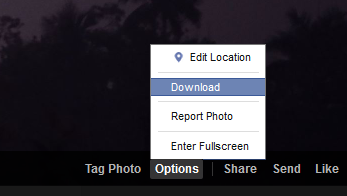Facebook has become the world’s foremost photo sharing platform. Websites like Flickr and 500px have their own place in the Internet, but Facebook has gained popularity amongst photographers because it revolutionized the concept of instant feedback by introducing the Like button.
Are you one of those photographers who goes weak in the knees when you get a lot of Likes?. Do Likes drive you to share more frequently on Facebook? Should you post your photos on other platforms? Is there any merit in having your own self-hosted website? Read on to understand how Facebook actually works, and what it means to use it to as a photo sharing website.
Acknowledgement v/s Engagement
Photographers, like other artists, wish to connect with their audience. There are always bathroom singers who perform only for themselves, but who wouldn’t want their photographs to be acknowledged? DSLRs are quite an investment, so it is hard not to like the Like button.
Today, almost every brand measures its online marketing campaign by Facebook “Likes.” However, the real story of Facebook Likes is not evident to the casual user. Did you know ‘Likes’ can be purchased? Read about how you can Boost a Post.

I am not against popularity. I know there are genuinely talented artists who have attained a certain level of popularity by just hard work. I am only trying to point out that Facebook measures popularity by Likes, and then tries to sell you popularity. There are two ways they do this.
Firstly, only 16% of your friends see your post on their wall. This is known as organic reach, and Facebook deliberately puts a restriction on the number of friends who see your post on their wall. Facebook wants you to pay them to reach more people. For many, photography is just a hobby so paying for anything other than their gear is not an option. If you do decide to go the paid route, funny things began to happen. Watch this video to know more.
Secondly, the Like itself has very little value. A person hitting Like may be merely acknowledging that he or she has seen your post. However, Facebook has successfully created a market out of accumulation of Likes.
Facebook is also more likely to show a post with more Likes on your wall, instead of as a notification or as a ticker to the right of your wall. Seriously, when was the last time you paid attention to the ticker on the right? With the sheer amount of information thrown at us, we naturally only pay 
attention to a few top updates. If your friends do not acknowledge your post with a Like or comment, Facebook is likely to bump you off their wall for good. Thereby, the only way to ensure you are visible to your friends is to have them compulsorily Like or comment on your post. So yes, a post with more Likes is bound to get more attention, but think about all the useful and meaningful stuff you missed because it did not show up on your wall.
Where this really hurts you as a professional photographer is lack of real engagement from your audience. Paying for Likes does not equate to active engagement from your audience. What if you are trying to advertise a workshop, or promote your website? The number of Likes does not translate to workshop sign-ups or website clicks.
By limiting organic reach and asking for money to get to more of your friends, Facebook is less of a social media website, and more of a marketing platform. Real photo sharing websites do not ask you money to showcase your work to the world. If a photo of yours gains visibility on Flickr or 500px, the chances of a paying customer buying your photo is higher. The unanswered question is – what are the tangible benefits of paying Facebook for Likes?
Facebook: 0 Other Platforms: 1
Learning Photography
While most photographers are self-taught, part of the learning process involves studying the masters. A a new DSLR owner, you look at other photographers and try to imitate them. Sometime back, when websites like Flickr were popular among photographers, it was easy to find good photos. Flickr had a section called ‘Explore’ that almost always showcased the best content. 500px has similar sections on their website too.
Beginners also rely on critique from peers to improve their craft. However, honest critique is hard to come by, especially from established photographers. As a pro photographer, you are everything from the CEO to the errand-boy. Donning these different hats is time-consuming. As a result, most professional photographers use Facebook in broadcast-mode. Very few engage in discussions. Unfortunately, the design of Facebook is difficult for conversation. You have a Post, and below it you have Comments. Often, the Comments section is filled with so much noise that you rather not contribute. Another reason why people just prefer to hit Like.
As a beginner, how can you tell if a photographer is really as good as the Likes he or she gets? What do you think happens when beginners use Facebook as their learning ground? The answer is anybody’s guess.
As a beginner, when you share your work on Facebook, you risk falling into the ‘awesomeness trap.’ Many a times, adulation on Facebook, especially from non-photographers, is nothing short of a virtual Oscar. Very soon, you may start believing that you are indeed awesome. Learning happens only when the critique is honest, and the focus is on growth, rather than popularity. The perception of awesomeness indeed be deliberate or simply a by-product of having net-savvy friends. Facebook makes it hard to tell.
If you seek honest feedback, you are better off participating in smaller forums. Flickr discussions were once a great place for discussions related to gear and technique. Recently, 500px introduced the concept of groups, which is a good place to have meaningful conversations and learn something new.
 Facebook: 0 Other Platforms: 1
Facebook: 0 Other Platforms: 1
Personal Websites and Blogs
Many traditional print magazines and newspapers have come to terms with the fact that their audience is now online. This hasn’t changed the fact that people still want to be told stories. The Internet reading experience can be involving when authored well. High quality photos are the magic ingredient to this experience. With tablets becoming popular, online reading is no longer cumbersome, and can be more multimedia friendly.
Self-hosted websites and blogs were the first to put the power of self-publication in the hands of the individual. Ordinary folk could publish everything from mundane happenings, in their life to tips on surreal photography. Travelogues, tutorials, blog posts, and other content that you publish on a self-hosted website or blog is timeless and available to anyone, anytime. When Google picks up your work, you can (cumulatively) reach out to far more people than on Facebook. Where do you think people who seek information or stock photos go to? Certainly not Facebook. They use search engines and land up on websites and blogs.
When you post photos on Facebook, you are unfortunately telling your story in a very limited way. Irrespective of whether you are paying Facebook or not, your story reaches a very limited audience. From my own experience of posting links from my website on Facebook, very few readers care to click to visit the website (Facebook knows this too). This is why link-baiting on Facebook has become so common.
The lifespan of your work that you post on Facebook is short lived. Have you noticed how your posts get buried deep in the timeline in a very short duration? Have you tried searching Facebook for something useful that you came across a while ago? It is next to impossible.
On the other hand, Google gives more weightage to content. It is true that SEO is a lot of hard work, but the focus is always on the authenticity and relevance of the content, and not popularity of the poster. You don’t always need to pay money to Google to have your website listed on the first page. My posts on Channapatna and Har-Ki-Dun have enjoyed top ranking on Google, and I did not spend a paisa. So if you care about making the Internet a richer place, consider sharing your work outside of Facebook.
Facebook 0 Other platforms: 1
Mobile Internet
If your intention is only to share your work with friends and family and you don’t care for Likes, Facebook makes one thing easy. The way people are accessing the Internet these days has changed. Tablets and phones have become very popular, and people use it for their daily dose of news and entertainment. The Facebook app does a good job of optimizing photos and delivering them through the app. Although I have apps for Flickr and 500px on my phone, I seldom open them. I am sure this is the case with many others. Why? Because when I spend time browsing, I may not do it exclusively for photography. I am sure it is the same for many others. Opening the Facebook app when you are in spending time online gives you access to more than just photography.
That said, you should be aware of the fact that not all your friends on Facebook are likely to see your post because the organic reach of posts on Facebook is only 16%. If you have a close group of friends and family that you want to stay connected with, create a group on Facebook to ensure that your post reaches everyone.
Facebook 1 Other Platforms: 0
Conclusion
In the most simple words, Facebook is a marketing platform. It is good for your business. It can bring you visibility if you use the right marketing techniques. But it is a very poor platform to learn photography and become a better photographer. And by better photographer, I mean not just someone who takes nice photographers. But one who contributes to the community.
I have been sharing photos on a self-hosted platform since 2007. Being an active user of the internet, and and a photography enthusiast, I have spent a great deal of my life online. I also share photos on Facebook, Flickr, and 500px. These days I post on Instagram a lot. This article is based on my experiences, and a recent foray into the world of Facebook marketing. I have nothing against Facebook’s revenue generating schemes, but by asking money from artists to promote their work, Facebook has made it is difficult to differentiate talent from clever marketing.
Viral marketing is easy in India because we have very little privacy concerns. We love to glorify our artists (think Bollywood), and unashamedly shower adulation on our heroes (think cricket). Most of our young net-savvy users don’t care about Facebook’s stealth marketing agenda or the fact that they are no longer in control of what they see on their Newsfeed. No wonder Facebook loves us. Consider the number of Likes on the page of a contemporary Indian photographer, v/s that of Steve McCurry’s. BTW if you want to buy Steve McCurry’s work, you can click here.
 There is no reason not to be on Facebook. It does a pretty good job of helping friends keep in touch. To answer the question of where you should post your photos, you should first define your intention. If you intend to build a brand, then posting on Facebook and paying for Likes helps you build the perception in people’s minds that you are awesome. If you intend to just be social and share photos for the viewing pleasure of your friends and family, Facebook makes it technically easy to deliver content across different devices. If you have a bunch of friends who indulge in hero-worship and you are already extremely popular, you wouldn’t even be reading this 🙂
There is no reason not to be on Facebook. It does a pretty good job of helping friends keep in touch. To answer the question of where you should post your photos, you should first define your intention. If you intend to build a brand, then posting on Facebook and paying for Likes helps you build the perception in people’s minds that you are awesome. If you intend to just be social and share photos for the viewing pleasure of your friends and family, Facebook makes it technically easy to deliver content across different devices. If you have a bunch of friends who indulge in hero-worship and you are already extremely popular, you wouldn’t even be reading this 🙂
If your intention is to contribute meaningfully to the Internet, you need to work hard to develop quality content. Hard work is an antithesis of what Facebook stands for. If you want your work to persist, and if you care about weaving stories around your photos, a self-hosted website is definitely the way to go. If you just want a place to upload photos and share with people outside your network, or if you want to license your work, you can pick one of the photo sharing websites. Websites like 500px make it easy to sell photographs to potential clients – something Flickr has been doing for long. If you want to give back to the community, then participating in forums makes a lot of sense. End of the day, whatever you choose, remember to stay true to the spirit of art, and not end up becoming a sell-out or marketing specialist.
Note: I don’t care much about privacy concerns that have clouded Facebook’s reputation, but it annoys me to know that when you share a photo on Facebook, anyone can legitimately download a copy. Currently there is no way to restrict that.


